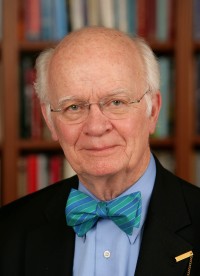Fake IDs: Trent Lott's apology
Trent Lott is last year’s news, history, on the ash heap. The senator has been contrite, has repented, asked for forgiveness, done penance and publicly resolved henceforth to lead a godly life. Thanks to his pledges and his party’s eagerness to relegate him to the ash heap, we can look forward to a Republican Party that will remain true to the ideals of Abraham Lincoln, as it has through its Southern Strategy invented in 1948 and perfected for over a half century. African-Americans can be assured that programs designed to favor them will have bipartisan support.
Now it is my turn to be contrite, to repent, to ask for forgiveness, to do penance and to resolve to lead a godly life. My sin? Devoting a paragraph of this column to politics, and to dated issues at that. I usually suppress my political commitments and on this page stick to matters of faith, religion and theology. But Trent Lott in his fifth semiapology did bring up a religious matter. He blamed “a lot of people” who set the trap into which he fell, and then added, “I have only myself to blame,” presumably for falling into the trap. So that’s what he’s sorry for.
His words were memorable: “When you’re from Mississippi and you’re a conservative and you’re a Christian” a lot of trap-setters are out to get you. Let’s decode and deconstruct that line. Being from Mississippi and conservative can’t be the cause of the trouble. Those things give one more access to power, government position, federal funding and the opening of cultural doors than a Massachusetts liberal could even hope for. The point we were meant to notice is that traps get set “if you’re a Christian.”
Now, let’s look at the record. My registry of religious identification in the U.S. Congress is for the year 2000, but I cannot imagine that much has changed since then. What you and I, polltakers, demographers, church statisticians and, I hope, the God of conservatives, moderates and liberals alike would call Christians are well represented. If Lott is right,“a lot of people” must not set traps for or regard as Christian the Congress’s 150 Catholics or the non-Mississippians among Lott’s 72 fellow Baptists, its 65 Methodists, 49 Presbyterians, 41 Episcopalians, 20 Lutherans, 29 “nondenominational Protestants” and others. Does Lott know their hearts? Does he know they are not real Christians, and that they are trap-setters for those who are?
If there’s a barely hidden seething in my words, it derives from resentment over the way the Lotts of this nation have camped on the word “Christian.” If they wear their far-right identification on their congressional sleeves, make a point of appearing at conservative activist rallies, advertise their going into the temple and thanking God that they are not like all of us other people, and call themselves Christian often enough, unreflective mass media communicators pick up that identification. Consequently, “Christian” comes to mean “far-right politician” to an equally unreflective public. That practice is likely to make most of the world’s 1.8 billion Christians have reason to cringe at even being called Christian.
Asked to define what being a Christian meant, my old professor and friend Joseph Sittler answered simply, “To be a Christian is to accept what God gives in Christ.” I think that could be a true identification in Mississippi and beyond, among conservatives and others. Now I hope God gives me a forgiving heart, a heart able to be open to those who steal the name and the reputation of being Christian.





